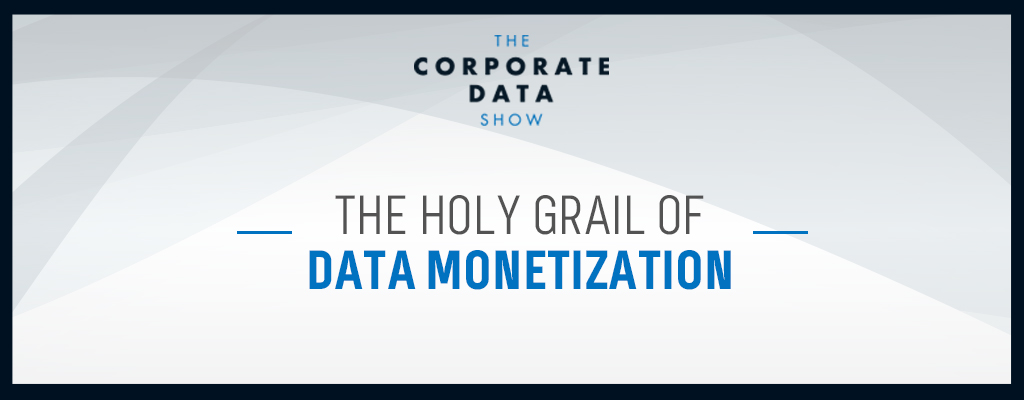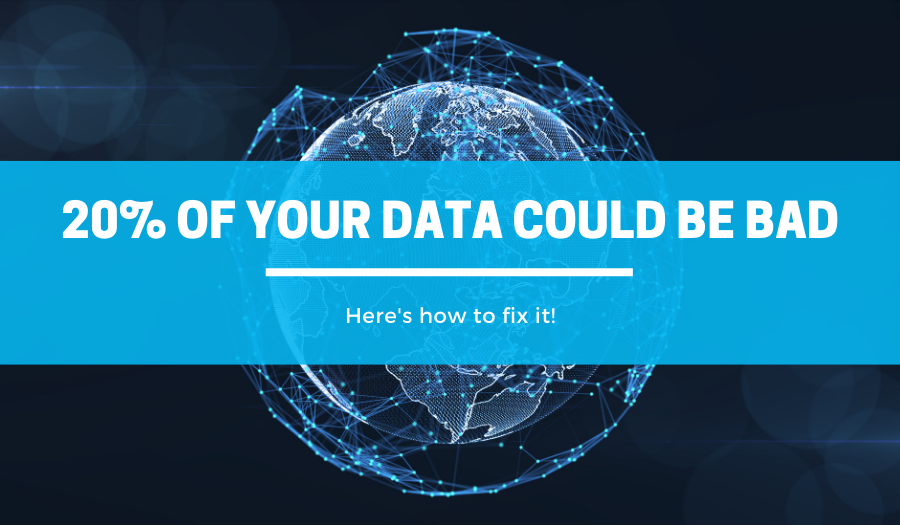
What if you found out there was a frictionless program that could help you make money from the data you didn’t even know your company had?
People are missing out on tons...
On this episode of the Corporate Data Show, Ryan Rolf, Vice President of Data Sales at Lotame, explains the ups and downs of data brokering.
Lotame is the only independent data management platform in the market today, specializing in the technology to help clients—particularly publishing clients—manage their data.
Aggregating data from many sources in true data broker fashion, Rolf supplies data to advertisers to field their targeting, all the while hosting it online for easy access. In his six years at Lotame, Rolf has seen the company become one of the largest global online data exchanges. He has also seen a lot of cockamamie ideas about how to build databases.
Clients with diverse use cases are coming to him to build stuff, so he knows the importance of data quality. “When you talk data quality,” Rolf said, “quality issues are in both sides of the world—third party data and first party data.”
In first party data, you’re bringing your own CRM file or customer data online, so accuracy is a must if you plan to message your customer base.
A quality check is super important because you can’t really mess with your existing CRM or first party data. Which is not an easy thing. “Maybe you bring in data from your offline CRM or onboarder, or you have it in a platform, but you also have your own websites out across the mobile and digital sphere,” Rolf said.

“I could line up people who intend to travel all day long, but if your ad is at the bottom of the page, it doesn’t matter what kind of trip you’re advertising.” –Ryan Rolf"
“Now you’re bringing in anonymous data from those sources, so you must pair online data correctly with the offline.” With third party data, you have to keep this in mind: “It’s always been this play of scale vs. quality,” Rolf said.
When you’re a big brand or advertiser, everything is about scale—that’s what programmatic is built on. “Now I have unlimited inventory and I can reach anybody anywhere, so I have to find the who. I have to make sure the who is right.”
As an industry, companies may want all the bells and whistles, but it really comes down to what the client is trying to do.
For example, say you have a CPG brand that wants to sell products. It might have great click through and reach, but sales is down by 20%. With the first hiccup in performance, everyone goes to quality—though you also have to talk scale.
If you do great generating 10 leads, you might get to 100, but if you don’t have impressions, you won’t get to 100 either. And this is where data quality really comes in. What’s going to drive value is the marketer who get the most value and ROI out of a third party segment. But a data broker knows that deciding whether you’ve got the right data for a customer requires a complex metric to understand the quality/scale benchmark.
“What they do, what ads they interact with, what searches they make, what articles they read, what videos they watch—I want to know what behaviors they collected and how many times they did a certain behavior before I really start whittling down.” –Ryan Rolf"
To Lotame, Rolf said the effectiveness of data quality often lies with marketing. “Was the ad above the fold—meaning did it have viewability—or was it down at the bottom of the page and never seen? I could line up people who intend to travel all day long, but if your ad is at the bottom of the page, it doesn’t matter what kind of trip you’re advertising.”
The data needs to be great, but if your market isn’t reaching your target, that doesn’t matter. Fortunately, clients are becoming more aware that they need to know what kind of data they’re buying. Over the years, advertisers and agencies have learned to ask the right questions and care about what quality means.
But what does quality mean when there’s no right or wrong measurement for defining “interest in travel?”
“Lotame looks at two things,” Rolf explains. “Whether an interest is self-declared or demonstrated.” A self-declared data point might start traditionally, such as non-PII data gathered from a dating site.
But the best way to gather data is to watch for it to be demonstrated by checking out what actions a person completes.
Here’s a big difference between scraping URLs and finding out if someone genuinely likes reading business articles. If all you’re doing is tracking website visits, you’ll think it important if someone accidentally clicked on business instead of politics.

“It’s always been this play of scale vs. quality.” – Ryan Rolf
“What they do, what ads they interact with, what searches they make, what articles they read, what videos they watch—I want to know what behaviors they collected and how many times did they do a certain behavior before I really start whittling down,” Rolf said.
A second part of data quality, and the future of where we’re going, is the measurement for humanness. Bots are out there. Whether you’re an onboarder or online company, you’ve got to make sure you’re not bringing in garbage.
Lotame is partnering with a company that specializes in analyzing human behavior online. That way, by understanding humans, it can weed out all those sophisticated bots to keep the advertisers from being unhappy.
But this is a classic data services problem: it’s just hard to say whether the campaign was successful by looking only at data quality. In today’s data brokerage realm of a completely different time (brokering in the traffic of online properties), the job of data broker is evolving.
There’s been an explosion of data companies that marketers are working with now. “When I started with Lotame six years ago,” Rolf said, “we were one of maybe six top known data brokers online. Now we have 90 different data companies calling on us.”
Lotame aggregates online data from over 400,000 publishers globally. It brings online companies that want to provide data to trusted bundlers who have reliable methodology to group it the right way, make the monetization efforts, and build relationships. So, you provide your data to someone like lotame, who brings it to the online world on your behalf.

Where will the business go in the future? As marketers become smarter and platforms more sophisticated to collect data from different sources, data brokers can help facilitate business between, say, quality private data source A and big CPG brand marketer B.
Lotame will get the data from A and bring it to B—still keeping the private data from hitting the public marketplace. “We’ll let the supplier and marketer make their own deal and negotiate the CMPs that they want,” Rolf said. “We’ll be the highway there with a toll.” It’s like being a list manager—if you know your inventory and have smooth, inexpensive access to the data, you can make a trusted data partnership with someone.
The crux is this: blending the digital and online worlds to make a productive conversation.
Find Ryan Rolf on the contact page of www.lotame.com, look for him on LinkedIn, or follow @ryanwrolf on Twitter. For any data related inquiries, contact EMM here.
To hear this episode, and many more like it, you can subscribe to The Corporate Data Show.
If you don’t use iTunes, you can listen to every episode here.

What if you found out there was a frictionless program that could help you make money from the data you didn’t even know your company had?
People are missing out on tons...

When you think about how much bad data can really cost you, it’s important to make sure that your info is deliverable, callable, and emailable.
Okay, so, you’ve got a...